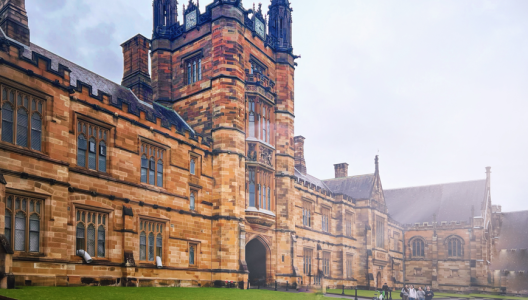University's long standing's new policy has people fuming
By
- Replies 13
The cherished tradition of browsing through stacks of second-hand books and unearthing literary treasures at the University of Sydney's annual Chancellor's Committee Book Fair has hit a snag.
The book fair, a long-standing event that began in 1986 as Bookfest, has been a haven for those who love the feel of a physical book.
This year, however, attendees will need to pocket their cash and pull out their cards instead.
The university's decision to partner with Lifeline Sydney for the event is commendable.
Half of the proceeds will go to charity, and the other half to the university's Chancellor's Committee.
‘For the first time in 2024, the Book Fair will go cashless. If you're keen to make a purchase, you'll need to make sure you bring your card,’ the university announced.
Yet, the shift to a cashless system has sparked concerns about accessibility and inclusivity.
Joe Alvaro expressed fears that the move could exclude specific population segments.
‘Not everyone has a card or wants to use a card. Some vulnerable people in our community do not have a card,’ he said.
The university's spokeswoman defended the decision.
‘This year, we've decided to use convenient digital payment methods for purchases at the Fair – in line with a general trend away from cash and toward card payments at the Fair, and to support the safety of our volunteers by removing the need for them to handle large amounts of cash,’ she said.
‘While our new Book Fair partner Lifeline Sydney and Sutherland have advised they still accept cash donations at the event, registers will be digital-only, and our signage and promotions will continue to encourage digital payments.’
The book fair has previously showcased up to 50,000 books for sale.
The Australian Competition and Consumer Commission (ACCC) confirmed that it's perfectly legal for businesses to refuse cash payments as long as consumers are aware of these terms and conditions before purchasing.
In other news about transitioning to a cashless society, KFC customers expressed anger after one branch implemented a card-only policy.
A sign at the KFC in Morisset indicated that only 'contact-free' payments are accepted, and service was refused to an elderly man who wanted to pay with cash. You can read more about it here.

How do you feel about transitioning to a cashless system at the University of Sydney's Book Fair? Do you think it will impact accessibility for certain groups? We’d love to hear your thoughts and opinions in the comments below.
The book fair, a long-standing event that began in 1986 as Bookfest, has been a haven for those who love the feel of a physical book.
This year, however, attendees will need to pocket their cash and pull out their cards instead.
The university's decision to partner with Lifeline Sydney for the event is commendable.
Half of the proceeds will go to charity, and the other half to the university's Chancellor's Committee.
‘For the first time in 2024, the Book Fair will go cashless. If you're keen to make a purchase, you'll need to make sure you bring your card,’ the university announced.
Yet, the shift to a cashless system has sparked concerns about accessibility and inclusivity.
Joe Alvaro expressed fears that the move could exclude specific population segments.
‘Not everyone has a card or wants to use a card. Some vulnerable people in our community do not have a card,’ he said.
The university's spokeswoman defended the decision.
‘This year, we've decided to use convenient digital payment methods for purchases at the Fair – in line with a general trend away from cash and toward card payments at the Fair, and to support the safety of our volunteers by removing the need for them to handle large amounts of cash,’ she said.
‘While our new Book Fair partner Lifeline Sydney and Sutherland have advised they still accept cash donations at the event, registers will be digital-only, and our signage and promotions will continue to encourage digital payments.’
The book fair has previously showcased up to 50,000 books for sale.
The Australian Competition and Consumer Commission (ACCC) confirmed that it's perfectly legal for businesses to refuse cash payments as long as consumers are aware of these terms and conditions before purchasing.
In other news about transitioning to a cashless society, KFC customers expressed anger after one branch implemented a card-only policy.
A sign at the KFC in Morisset indicated that only 'contact-free' payments are accepted, and service was refused to an elderly man who wanted to pay with cash. You can read more about it here.
Key Takeaways
- The University of Sydney's 37th annual Chancellor's Committee Book Fair, in collaboration with Lifeline Sydney, will be cashless for the first time in 2024.
- Some community members have expressed concern that going cash-free may exclude people who do not have or want to use a card.
- The University of Sydney spokeswoman cited the trend towards digital payments and volunteer safety as reasons for going cashless.
- It is legal for businesses in Australia to refuse cash payments as long as customers are informed of these terms and conditions before making a purchase.








